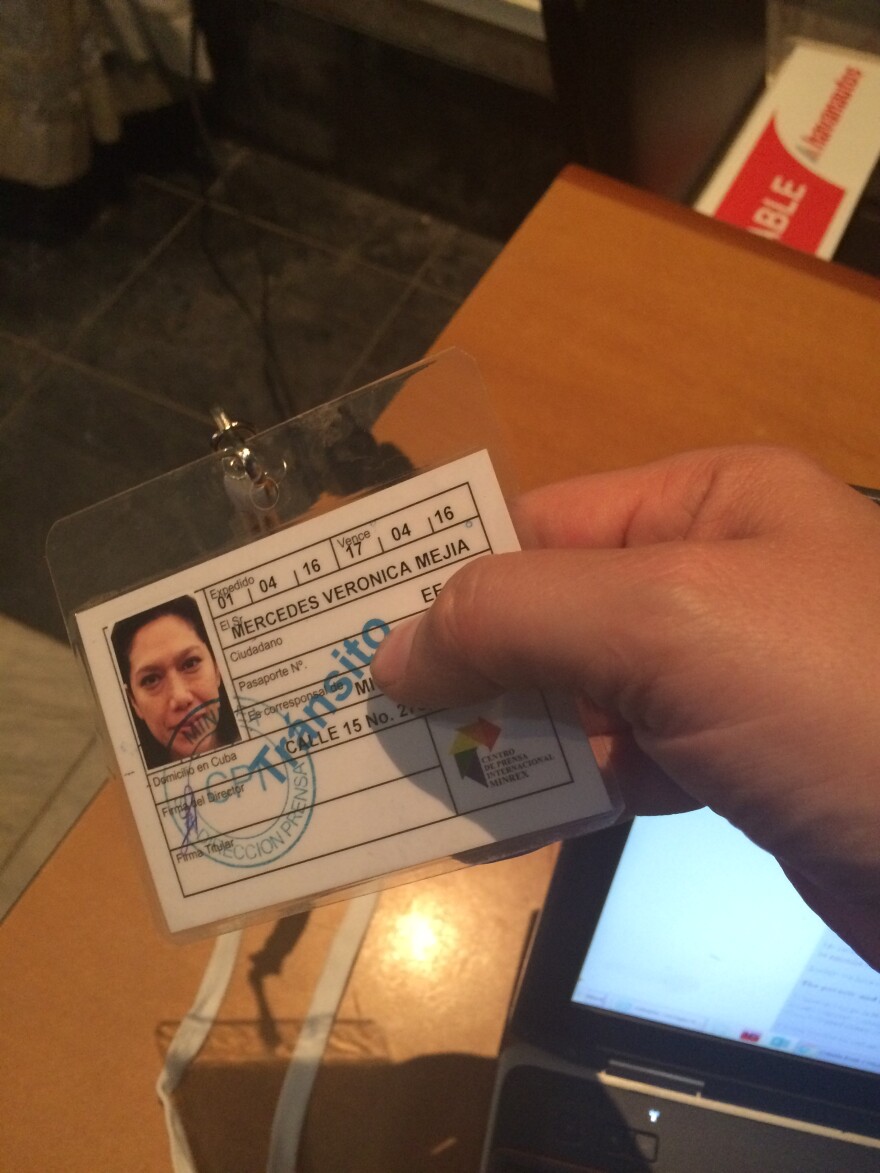Mercedes Mejia and I have been in Cuba for four days, long enough to have ridden a bus, taken a shared taxi, used the local currency, interviewed many Cubans, eaten some quite good meals, and formed a few impressions. Here are a few of mine.
Feeling a little of Flint’s pain in Cuba
Everybody, no matter how brave their character, agrees one must not drink the tap water in Cuba. It is treated with chemicals, but I’m told it still has microbes that an American stomach would find most objectionable.
Therefore, we avoid it at all costs. This is not easy or inexpensive to do, as any Flint resident could tell you. We have spent easily $75 so far on water, to carry with us and to have in our casa particular (an apartment rented to you by a Cuban resident) and at restaurants. Only the tourists require bottled water, so it can be priced high, as much as $2 or $2.50 per bottle.
I’ve learned it takes many bottles of water to cook spaghetti. And it is so hot and humid here (it’s not even summer yet) that I drink easily five times the amount of water I consume at home.
When you have to drink water out of a bottle, the whole world is a desert.
Cubans officials don’t say no. But they also don’t say yes.
Our relationship with the Cuban International Press Office has not been easy.
By the time we left the U.S., the Cuban embassy in Washington, D.C. told us our requested interviews with officials in Cuba were arranged.
On Friday, the afternoon we arrived, the person who supposedly had our schedule of interviews vacated the building at 5:00 p.m. sharp even though she knew we were waiting for it. She was like a Cuban version of Fred Flintstone abandoning his work as soon as the dinosaur whistle blows. This is not unusual, really. I have certainly encountered the 9 to 5 mentality in the U.S. But since we are only in Cuba for eight days, the clock is ticking.

On Monday, we came back to the press office at 8:30 a.m. and were told that to get our schedule we needed to speak with a different person, and this person was not in the building. Finding her necessitated an alarming number of phone calls, which cost .33 cents a minute here. Internet time is also expensive. Our budget being modest -- this is public radio, after all -- I keep counting our money to make sure we won’t run out because if that happens you have to stay in Cuba forever and sell snacks on the street to tourists to survive.
Or so I imagine.
At any rate when this second official returned our phone calls in the late afternoon, we were informed we had been granted two of the seven interviews I had requested. The explanation as to why only two was vague.
To be philosophical about it all, perhaps we are now feeling a little bit of Cubans’ pain. Many people have told us the Cuban government works in mysterious ways. Or doesn’t work at all.
My revenge fantasy involves sending a letter to Raul Castro upon our return to the United States suggesting he enscribe on the façade of the International Press Office “Abandon hope, all ye who enter here.”
Luckily, we have some contacts of our own. Plan B is being hastily formed.
The poverty and richness of life in Havana
Wherever you go in Havana, there is music. At the local grocery store, on the bus, strolling through the farmer’s market, walking on the sidewalk behind a Cuban teen with a boombox, or elbowing through the tourist-clogged streets of Habana Vieja.
Cubans breathe air and music, as if both are necessary for human life.
Cubans also talk very loud. They are louder than Americans. This is a good thing, as it makes me feel better about my own loudness. When I visited Germany, Germans stared disapprovingly at me as I was having conversations at what seemed normal volume with fellow Americans. I have no such worries in Cuba.
Many people work very hard in Cuba just to get by. They often have more than one job; some of those jobs require back-breaking labor; or they involve the stress of boredom and anxiety and low pay.
There is sometimes grimness on the faces of people in Havana, but also much humor, kindness, and pleasure. I find in general they are generous with what they do have, and they watch over each other, and do the same for their guests.

What has impressed me the most is how much affection Cubans show their children. Everywhere you see a young child, there you also see a mother or father caressing, or gently chiding, or playing with, or holding close that child. This isn’t to say you never hear a parent yell at their kid. But it’s obvious how much the average Cuban family cherishes its children.
It seems to me that a country that loves its children this deeply cannot be called poor.







